Table of Contents
©alifornia, Inc.
Introduction and Preview
This month’s featured comic is ©alifornia Inc., which was written by Arthur Ebuen, illustrated by Dave Law, edited by Justin Giampaoli, and lettered by Frank Cvetkovic. It’s a four issue series about a future in which California becomes a corporation and declares its independence. It has political intrigue, espionage, and family drama.
The fourth and final issue is on Kickstarter until February 13th: https://www.kickstarter.com/projects/artebuen/california-inc-1-4-the-complete-series
An Interview with Arthur Ebuen
by Curtis Clow
Arthur “Art” Ebuen approached me at San Diego Comic Con a few years ago with a script in hand, asking for advice. We kept in touch, and have been friends since. Art has a long history in the entertainment industry, going way back to working as an animator on The Simpsons. Now he’s making comics on Kickstarter, and he’s quickly becoming a name to watch on the platform.
After spending time with Caleb and I at L.A. Comic Con last year, Art was an obvious choice for Ink to Table. We sat down and asked him some questions about his work and his history.
CURTIS: How has your time as an animator influenced your creativity and experience making comics?
ART: Being in animating specifically really helped me think about story as a visual from storyboarding, to acting, to transitions. But my many other experiences only feed each other. My painting and illustration help me think about color and light when I’m shooting photography and directing/producing video. My graphic design and creative direction in advertising help my framing and compositions. All of them required the writing side of my brain, but thinking about how an artist will interpret and apply my writing helps me see things from their point-of-view.
CURTIS: What do you love about writing comics? Does it scratch an itch that animation didn’t?
ART: Owning the story, the backbone of why it all exists. Not just animation but all visual storytelling starts with writing. It’s been a massive eye-opener and extremely empowering. I’ve worked in animation, advertising, and video/commercial production, all for others’ brands or messaging. Writing a story that is my own, then watching it be made and then the reception, that was one of the most artistically satisfying feelings of my life. I’ve been part of a team that won an Emmy, I’ve received awards for my advertising but when someone comes to me at a convention or drops me a DM telling me (unprompted) they’re enjoying my story and wants more! I’ll take that drug all day.
CURTIS: You got into the Kickstarter game relatively recently. What has that experience been like? Caleb and I have been at this for a while, so it’s interesting to hear the perspective of newcomers.
ART: For anyone that is thinking about it, it’s a lot of work and cannot be taken lightly. You get out of it what you put in and most of “it” isn’t just the Kickstarter. It’s the marketing and PR before, during, and then the most important thing, fulfillment. Get the fulfillment right and on time, if not early, you’re setting the next Kickstarter for even more success. With all that said, I wouldn’t be here without it. It’s empowering to know you can do this all yourself, and a little help, but you don’t need to wait for a publisher to do it. Yes, there’s a lot of other books out there but someone wants your story just as much as you, make it. Make sure that person can find you and your Kickstarter, and remind them over and over again, it’s there and won’t be unless they support it.
CURTIS: ©alifornia, Inc. is a fascinating story that in some ways feels disturbingly prophetic. What inspired you to write this story in particular?
ART: I conceptualized ©alifornia, Inc. in 2015, starting writing it in 2016 and finished it around 2018. It does seem coincidentally topical and I wish I could claim some of that Simpsons prophecy skill but I am no Artstrodamus. It came from my frustration being in corporate America and how funny I found some of the office politics. That was mixed with my pride for California. I’ve lived in San Diego, Los Angeles, driven from LA to Florida, and also lived in Boston. Lots of different points-of-view but one thing in common is the stereotypical response about us Californians. I figured if we were so self-righteous and we did break off, what would we do differently and what are the barriers? Justin Giampaoli (my friend/editor) told me at the time California had the 5th strongest economy in the world. And we figured out that we depend on imported water from the Colorado River. California is the largest contributor of agriculture to the U.S., we have the best PR in Hollywood, and Silicon Valley can provide technical innovation. With all that, what needs to happen to make it happen, then what kinds of repercussions are there externally and internally? Those ideas helped me shape a lot of of background for what would then birth characters to be pushed with those circumstances. Examples: Who were the masterminds to make this happen? How do they keep up national pride? It’s a new nation, is it stable and if not what can threaten the balance? Not everyone who lives there can love it, who’s against it and how are they handling it, what’s more what don’t they like about it?
CURTIS: The comic is beautifully designed! Tell us about the design process for the covers of these comics.
ART: I did have a career in design and advertising for over 15 years. I’m happy the branding is coming through. I’ll take credit for the trade dress (masthead) and internal cover pages. But I’ll give full credit to Dave for starting the trend to crop the top with the three lines of the art so the simplistic corporate masthead logo isn’t disturbed but also break that border with a character. Then of course, we have some amazing talent to come in and do variants and I had a solve for them if they wanted to do a full bleed of artwork. I’ve lived branding and consistency in it for years, there’s no way you’ll see something in our stories that’ll be off brand. Our next stories will need their own and I’m excited to get started on a new look for those.
CURTIS: You’ve been on the grind going to cons, launching Kickstarters, etc. What are some networking tips you’d give aspiring creators who have yet to take the leap?
ART: Be fucking cool. That’s the key, be fucking cool. Also, my biggest tip is to take away the nasty word, “networking,” it has a gross connotation that we all cringe and worry about it all when it’s brought up. It really is just getting out there to the conventions, social channels, any signings and just meeting people. But here’s the key, just meet them and be cool. Don’t meet them to get something from them or vomit that you’re aspiring to make a book. If you were them, how would you like to meet someone new? You’d want them to be cool and just chat. So just chat. That’s a good thing for you too. You’ll get to know that creative and see if they’re a fit for the community you want to build. If they are, make note and say hi again naturally the next time you see them. If the conversation leads to what you do, cool. It will eventually. It took me a few years to meet the right folks when I was on the attendee side of the table. Over time, they got to know me as a person, they found out I was in the process of making a book. By the time my story came out, these relationships I’ve built over the last couple of years naturally signal boosted my books. Then when I started tabling, I had so many awesome folks I already knew willing to share tips to make sure I’m maximizing my exhibitor experience. Back to the lesson, be fucking cool. Meeting people naturally and be fucking cool.
CURTIS: Is ©alifornia, Inc. done after issue 4? What future plans do you have in the comics world?
ART: I wrote ©alifornia, Inc. as a 4-issue miniseries not knowing how it would be received. I’m flattered there is some disappointment that this story is over. But we do have more up our sleeves. I have a different story within the current story we’re making to be released as part of an sci-fi noir anthology. While I’m almost done writing that story, Dave is just starting art for that. As for Studio 12-7, we are also working on Justin’s story that Dave will be illustrating. That’s a 5-issue miniseries we’ll be breaking up into two volumes, a 2-issue volume then a 3-issue volume. That one has a different vibe, it’s a crime noir that takes place in northern California, set in current times. While those are being produced, I’m putting my heart and soul into a much longer story I’m writing that I’m just going to say is a sci-fi fantasy. We have some things in the hopper and we’re excited. As you two know, it’s all coming from our pockets so it will take longer than the bigger publishers but we’re just happy they’re our stories on our own terms.
How Late is Too Late?
by Caleb Palmquist
When you’re as deeply entrenched in Kickstarter as Curtis and I are, you have a lot of conversations about the state of the website, the community, and the industry at large. Sometimes we wonder if it’s still possible to “make it” on Kickstarter, and what the future of the platform holds.
Both Curtis and I started just a few years before the COVID pandemic hit, and while we had our share of wins, it wasn’t until the lockdowns that each of our “hits” happened. This could be coincidence - it’s entirely possible that we just hit our stride around that time, a few years after starting to crowdfund our comics.
It’s also possible that the period of time between 2020 and 2022 was something of a golden age for Kickstarter that raised all boats. We were in lockdown, there were government stimulus checks coming in, and people were looking for ways to support each other. The little guys like us were flourishing, and big names were too: in 2022 Brandon Sanderson broke the record for funding on Kickstarter with his now famous “Four Secret Novels” Kickstarter.
Of course, as we’ve moved on from the lockdowns, creators on Kickstarter have started to notice that we weren’t quite hitting those highs anymore. For those of us who had already “made it,” we seemed to be able to coast off of our success, but we wondered if new people would be able to find success the way we had.
Were we the last cohort of creators to squeak in before the platform became inhospitable for anyone except for big publishers and NSFW creators?
I’ve thought about this a lot, and I think the answer is a resounding hell no. Kickstarter is still the best platform for independent creators, and newer creators like Art prove that point. If you have an idea, the right skills, and the passion to see it through, you can absolutely make a name for yourself on Kickstarter, even now.
Starting is hard, and scary. But it’s never to late to start.
-Caleb
Signing Off
by Caleb Palmquist and Curtis Clow
Thanks for checking out the fifth issue of Ink to Table. If you have a suggestion for an amazing comic book coming up, or you have a comic you’d like featured, please feel free to contact us and let us know! We now have companion podcasts for each issue where we chat with the creators of the comic we’re covering. Don’t forget to subscribe!
This month’s comic was ©alifornia, Inc. It runs on Kickstarter until Thursday, February 13th. If you’d like to check it out, here’s the link: https://www.kickstarter.com/projects/artebuen/california-inc-1-4-the-complete-series
Until next time,
Caleb & Curtis





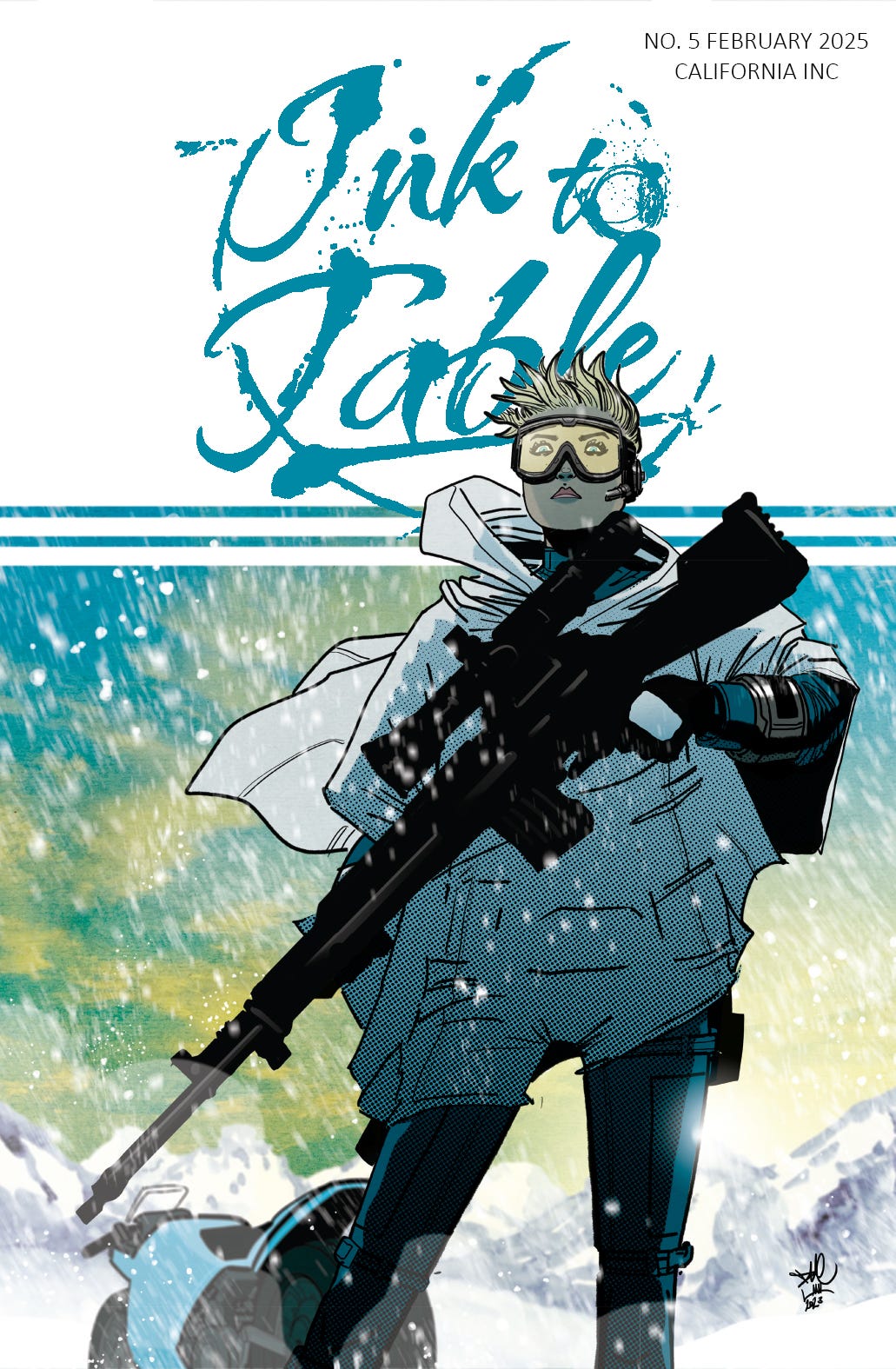
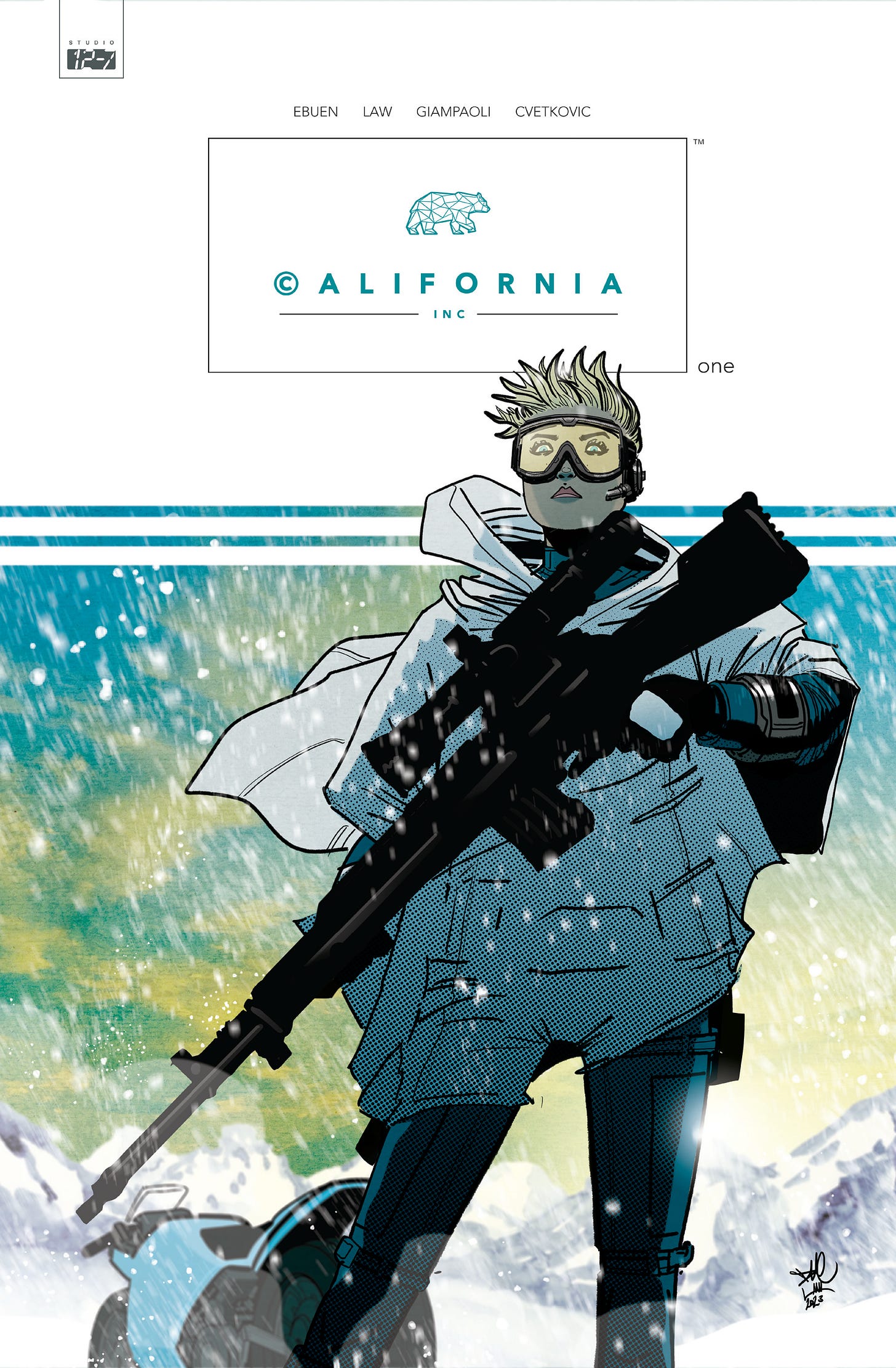
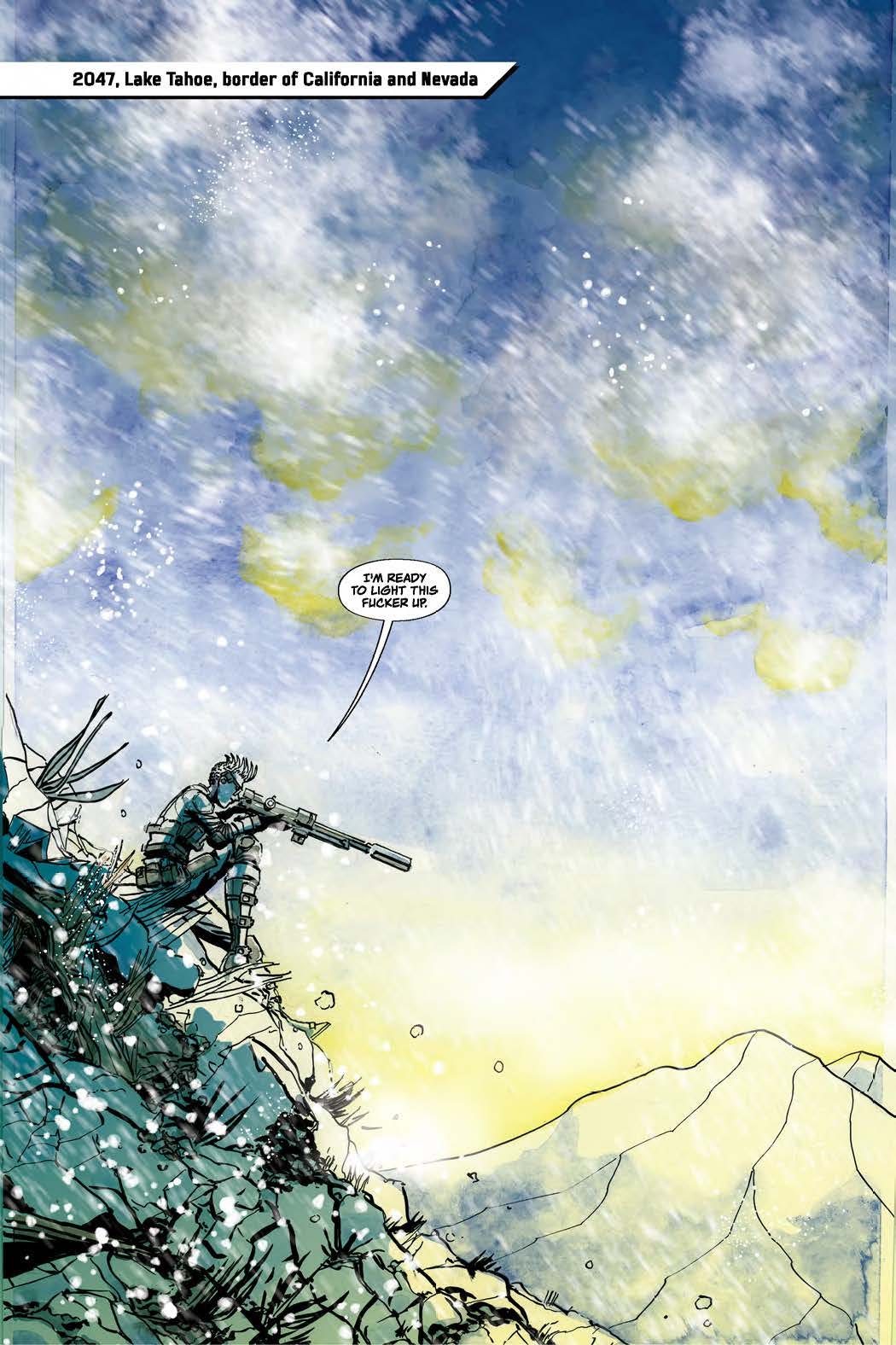

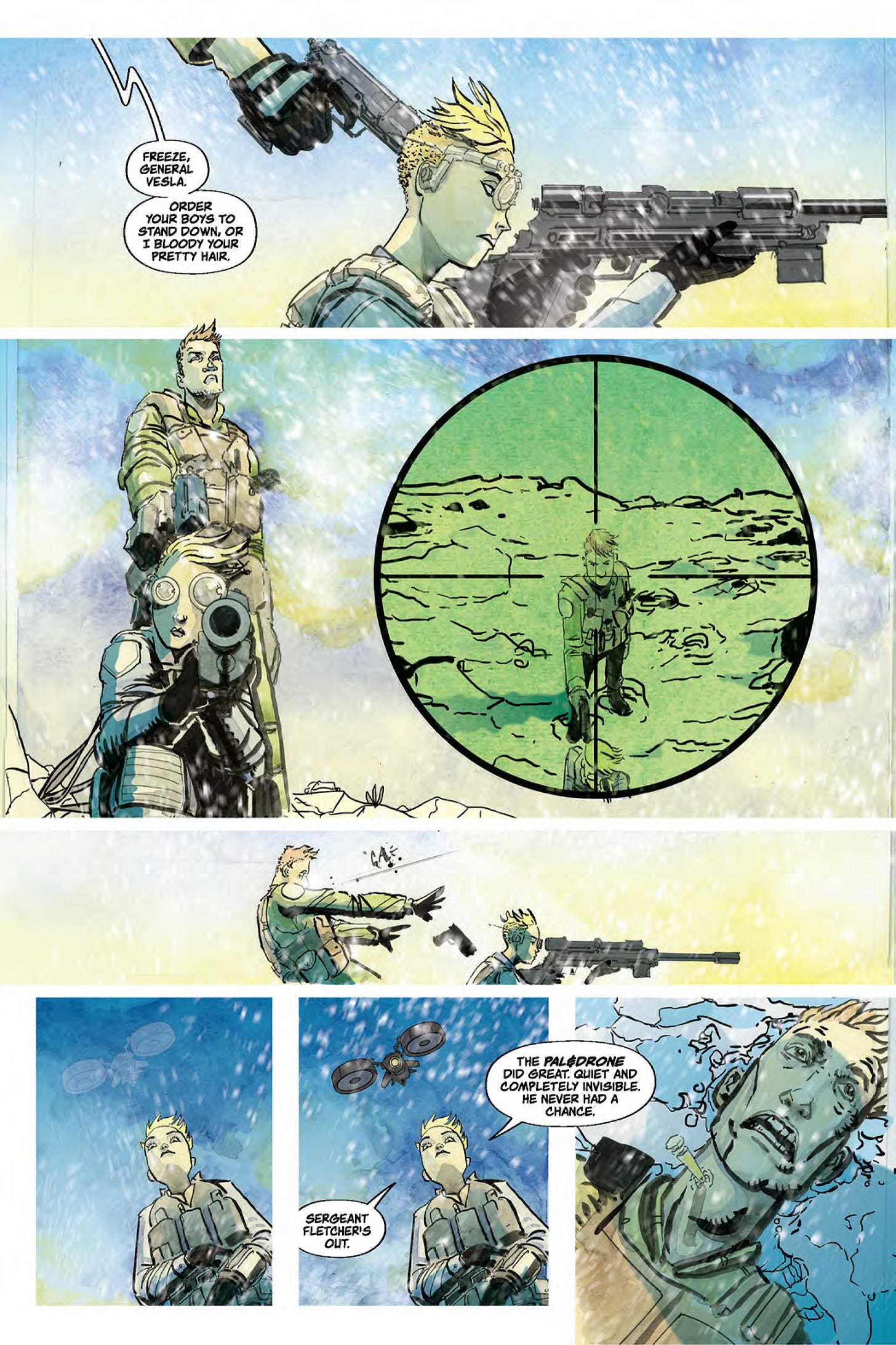
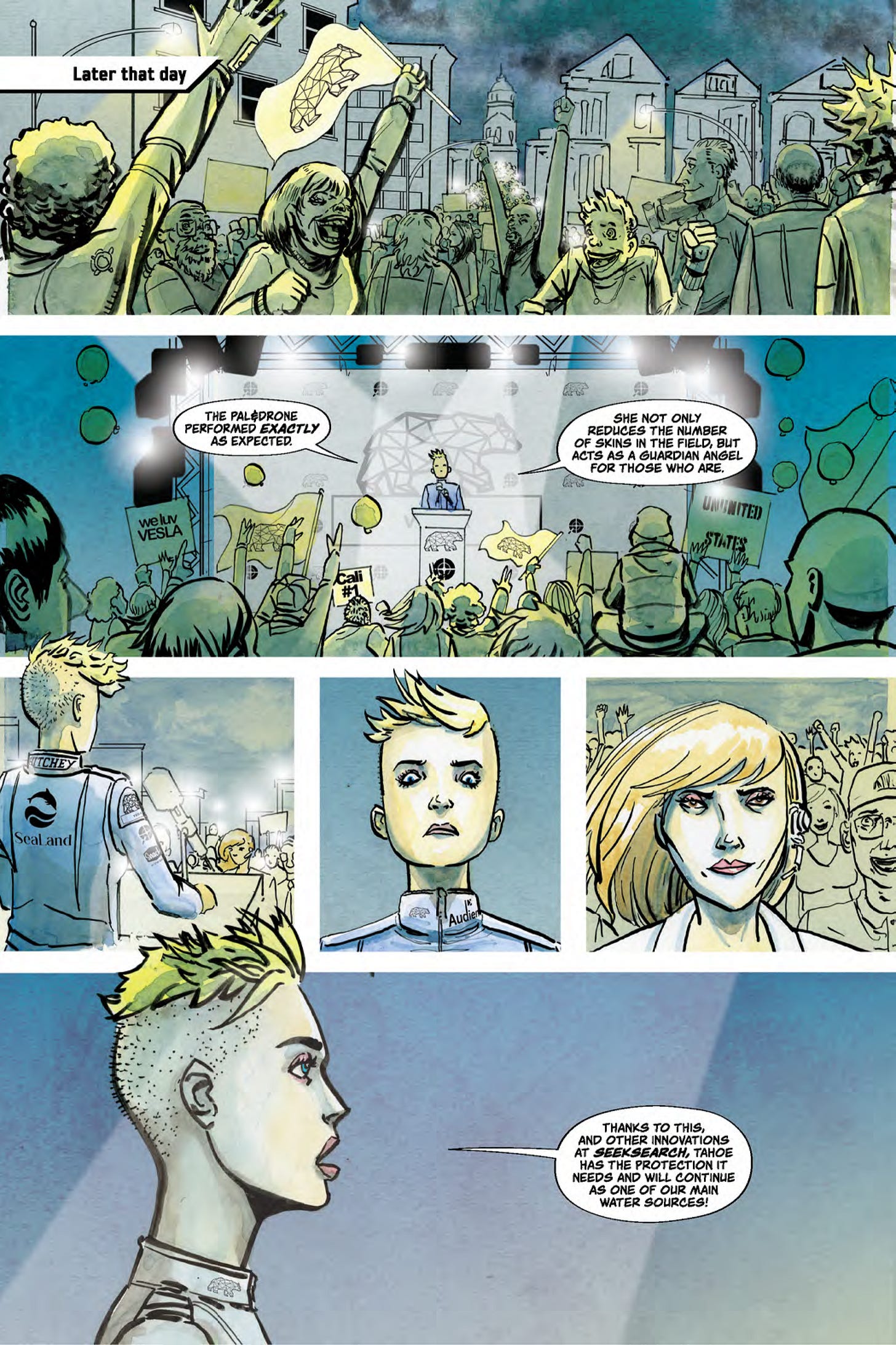



Thanks for having me, here and on the podcast, Curtis and Caleb! More importantly, I appreciate you two always willing to share some knowledge. 👊🏽